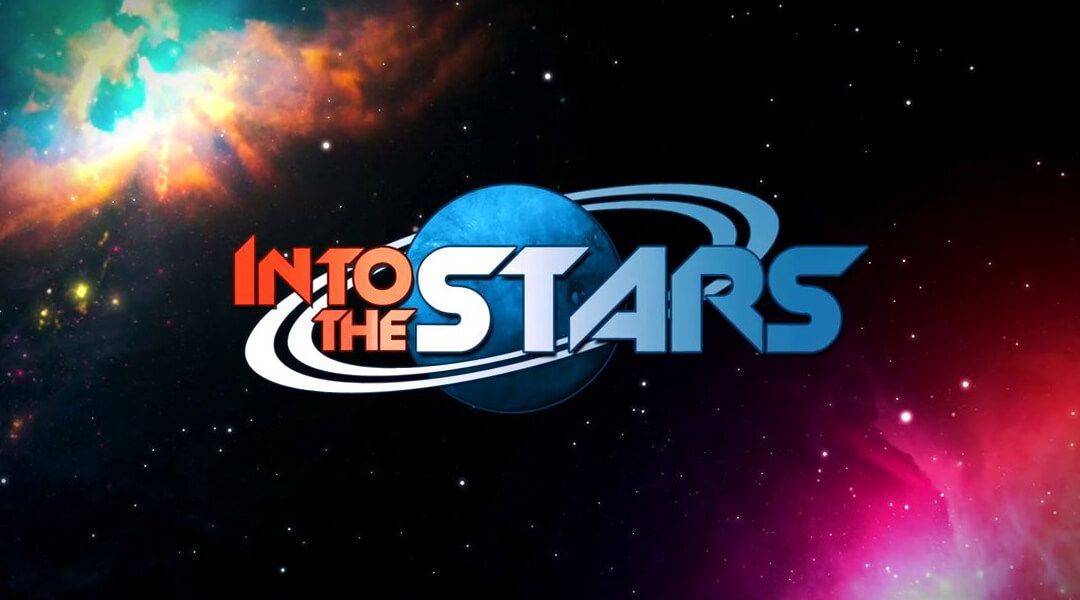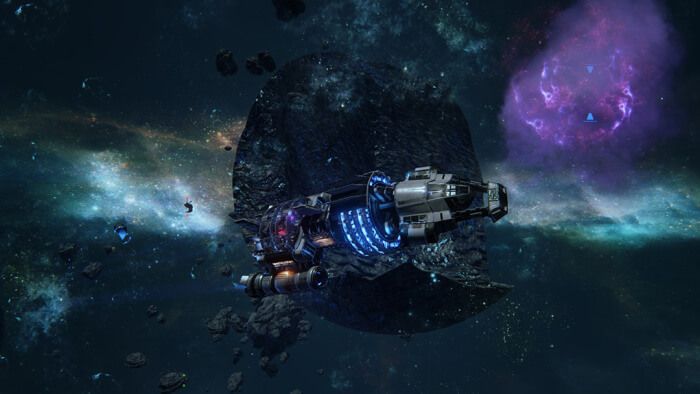
Into the Stars Review
By Rob Gordon 26 March 2016
Into The Stars offers up a slow-paced but atmospheric space-themed survival sim, combining the gameplay elements of The Oregon Trail and Civilization with roguelike mechanics.
Over recent years, a number of industry veterans have broken their ties to major developers, instead forging their own path through the land of independent game development. This has proved to be a success in several cases, such as with the critically acclaimed survival title The Flame in the Flood, which was created by a team of ex-BioShock developers. Meanwhile, Campo Santo’s Firewatch has become a critical and commercial darling, taking top place in the PS4 download rankings for February.
Another studio aiming to emulate this success is Fugitive Games. Built by a team of developers with a wealth of experience in AAA games, including Battlefield and Medal of Honor titles, Fugitive Games was created back in 2014. Teaming up with publisher Iceberg Interactive, another group of veteran game creators, the duo has now released ambitious space sim Into The Stars.
Given the previous projects that the collective parts of Fugitive Games and Iceberg Interactive can stake a claim to, there is certainly a reputation to uphold with Into The Stars. Thankfully, the title has a strong level of gravitas perhaps befitting of its developer and publisher history. Into The Stars certainly has a massive scale, placing players in charge of a behemoth of a ship, with responsibility over thousands of civilian lives.

In terms of narrative scale, too, Into The Stars is impressive. The player is given an important mission, to safely see their ship through the dangers of space, attempting to reach an elusive peaceful system while escaping from the threat of a hostile alien race known as the Skorn. This serious tone certainly works to the game’s advantage, and the title’s backstory adds successfully to the immersive nature of the game.
The gameplay, however, comes at space exploration in a different way to a number of its peers. Rather than the huge, narrative focus of Mass Effect or the vast, expansive nature of the likes of EVE: Online or Elite: Dangerous, Into The Stars instead takes on an almost roguelike feel. Acting as a crossover between FTL: Faster Than Light, cult classic educational survival sim The Oregon Trail, and the planetary exploration mini-games of Mass Effect 2, Into the Stars manages to feel fairly unique.

However, much like many roguelikes, Into The Stars can initially seem very intimidating. Although there is not the same initial threat or immediate demoralizing defeats as FTL: Faster Than Light or its peers, the title could be a little confusing for some. Micromanagement is key to Into The Stars, with half an eye kept of resources at all times, requiring the launch of probes and mining crews to resource-rich planets to keep the ship itself moving.
It’s not just resources that the ship’s captain needs to manage, either. As well as its core survival gameplay, Into The Stars also has the feel of a sim game such as Civilization, with the player having to maintain a good quality of living and stability amongst the denizens of the ship. Outbreaks of disease can prove incredibly dangerous, whilst the thousands of residents on the ship can also suffer from starvation if food supplies are not considered.
Thankfully, the captain has a hand-picked crew to choose from to assist with the running of the ship, as well as any manned missions to other planets. Each mission chosen can improve upon a crew member’s base stats, although the crew are far from invincible. The ability to both make and manage a custom crew is a neat choice, and one that once more makes Into The Stars feel greater than the sum of its parts.

However, in spite of the emulation of such acclaimed games, there is something that perhaps holds Into The Stars back from reaching the higher echelons of survival games. Unfortunately, in spite of the wide number of gameplay functions available throughout a playthrough – from ship management and resource farming through to dogfights with enemy ships – the title does not have quite as much excitement as many of its peers. No matter how much players can do, there’s not exactly anything that is going to truly set the pulse racing.
This is partly down to the pace of the game. In other titles that hold similar values, such as the aforementioned FTL: Faster Than Light and The Oregon Trail, there’s a certain speed to the proceedings. Players can blitz through the games, setting a quick pace between different locations and therefore negating some of the difficulty or frustrations found by an unsuccessful playthrough.
With Into The Stars, however, there is an entirely different approach, with matters taking place at a much slower pace. Players can take in the impressive view as their Ark ship rolls from area to area, with different issues cropping up from time to time that need to be managed. As such, a frantic intensity is taken away from the player, replaced instead with the ponderous nature of a space epic.

That’s not necessarily a bad thing, of course, and it allows Into The Stars to at least feel a little more like a simulator than much of its individual components. However, when it comes to the moments when a the player should be feeling at least a modicum of tension, such as during combat sequences or the choose-your-own-adventure style away missions to planets, the separation between the captain and the members of crew and population instead becomes all too apparent.
This also makes an unfortunate dent in the level of replayability that gamers may find in the title. Whereas other roguelikes, even those set in space such as Out There, can build reputations based around their addictive nature, such a desire to instantly replay after a failed attempt is unlikely to occur with Into The Stars. Everything takes a little too long to make the player immediately want to try again, and a successful playthrough is also unlikely to lead to players picking up the game to explore other sections of the map to hunt for secrets.
Overall, though, there are plenty of positives to be found in Into The Stars, particularly for those who enjoy a hard science fiction setting. The title is impressive to look at, and although it is not always the most thrilling adventure, the space opera tone will certainly be found charming by some. Into The Stars may not be for everyone, due to its slow pacing and gameplay focus on micromanagement, but space sim and survival fans can certainly pick up the title and find something a little bit different.
Trailer
Into The Stars is out now for PC. Game Rant was provided with a PC download code for the purposes of this review.
